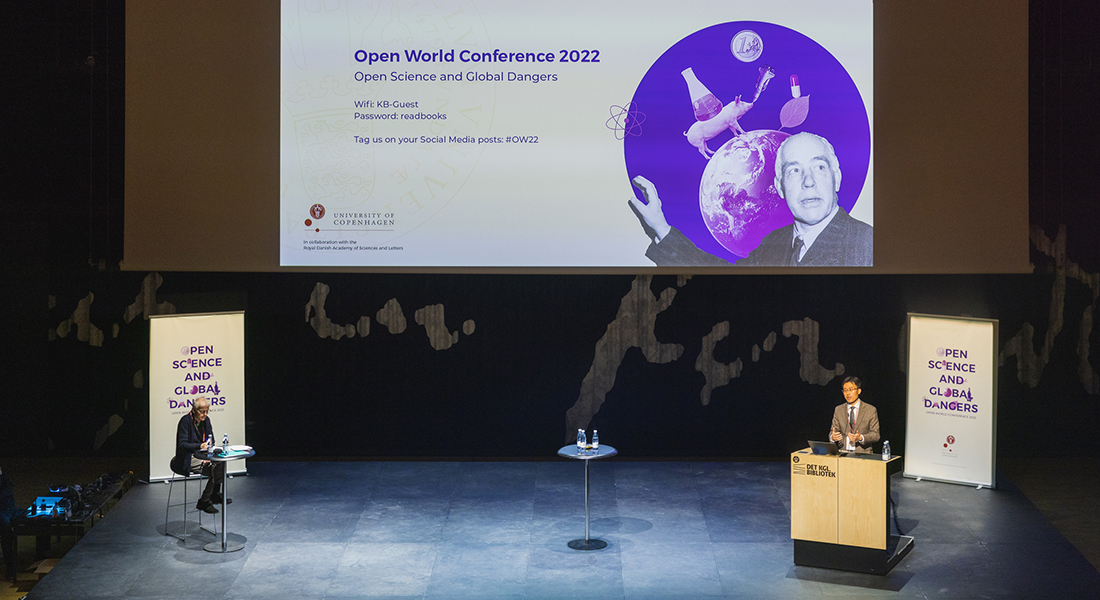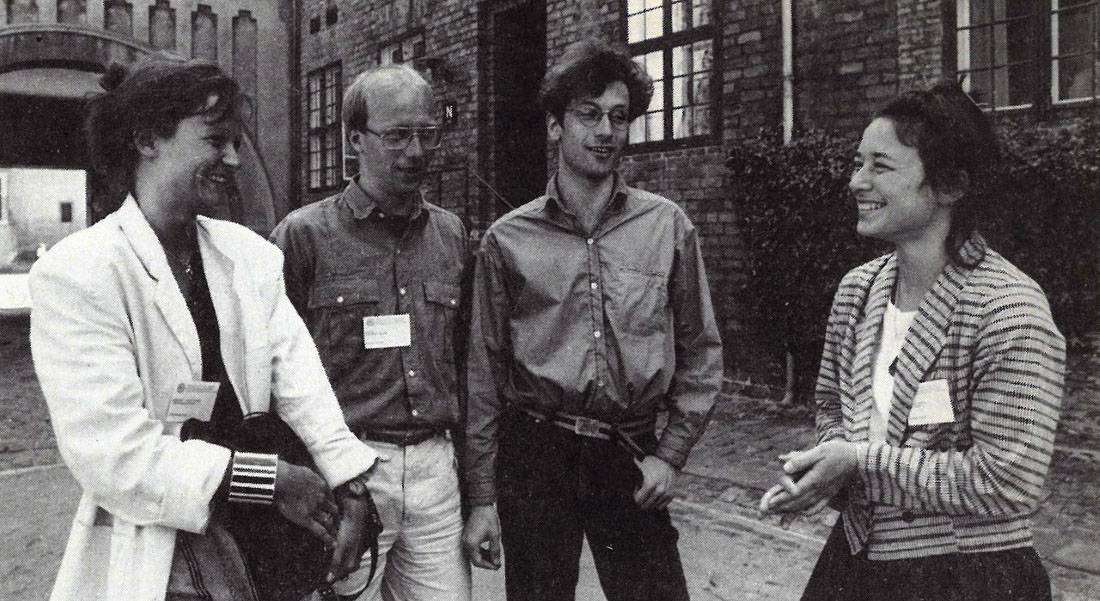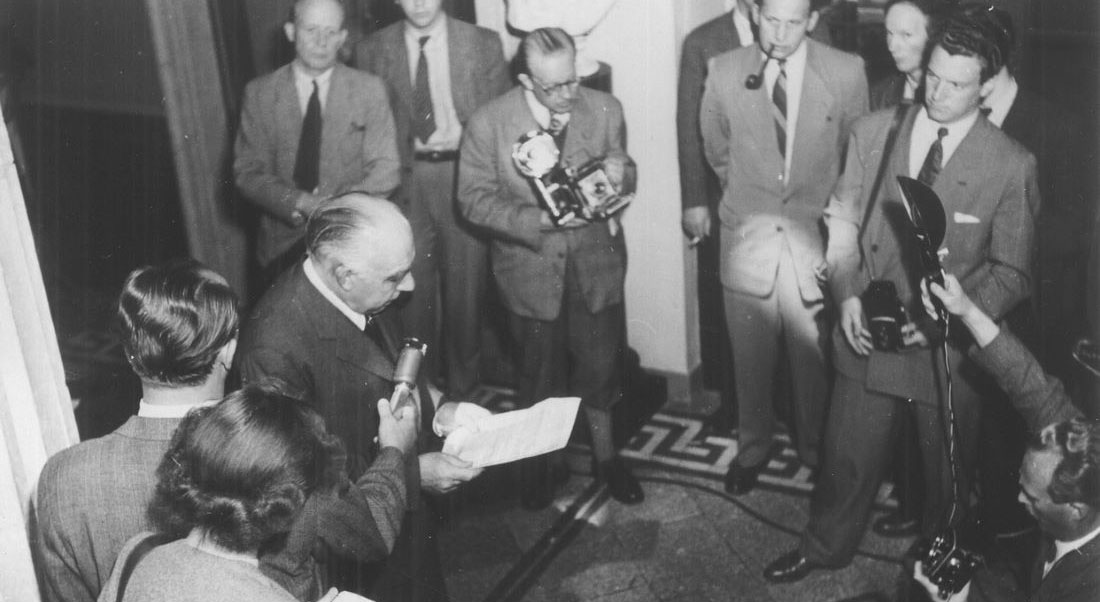About the "Open World" series
A series of conferences
The first Open World Conference was organised at the University of Copenhagen in 1985, the second in 1989, and the third in 2013. The latest conference, Open World Conference 2022, was held 10-11 November 2022.
Open World Conference 2022 was an interdisciplinary conference about open science and global dangers where researchers and opinion makers from all over the world met in Copenhagen and discussed the dilemmas of openness in research and research collaboration.

Marking the centenary of physicist Niels Bohr’s Nobel Prize in physics, and the United Nations announcing 2022 as the International Year of Basic Sciences for Sustainable Development, we celebrated Bohr’s vision of an open world and discussed how we, now and in the future, can use openness as a tool towards a safer world. Read more about Open World Conference 2022.

The next Open World Conference will be held in 2025. This even more comprehensive conference will celebrate the 75th anniversary for Bohr's open letter to the United Nations.
Acknowledging Bohr's vision
The series of Open World Conferencens are inspired by world renowned physicist Niels Bohr and his vision of an open world where nations may trust each other and collaborate by sharing science and technology across both geographical and academic borders. Bohr shared this vision in an open letter to the United Nations on June 9th, 1950, and in the letter he adressed the hopes and dangers associated with the nuclear revolution which he experienced firsthand.

Based on Bohr's own involvement with the Manhattan project, he had since 1943 made stern warnings to decision-makers that if left to national competition, the nuclear revolution would lead to the destructive political developments that indeed did materialize in the shape of the Cold War. Bohr argued that an open world could both curtail this danger and maximize benefits from these scientific and technological breakthroughs.
With increasing tensions between the US and China and the recent outbreak of war in Ukraine, Bohr’s ideas are as timely as ever. Peace - even in our part of the world - cannot be taken for granted. Openness, which according to Bohr is a prerequisite for peace, needs to be promoted. We hold that scientists can and should play a part in this process.
An open world where each nation can assert itself solely by the extent to which it can contribute to the common culture and is able to help others with experience and resources must be the goal to be put above everything else.
